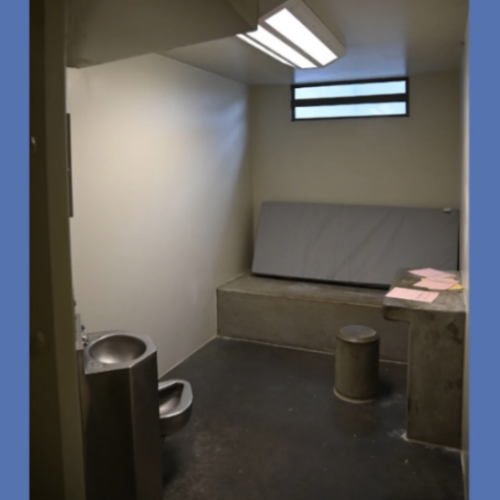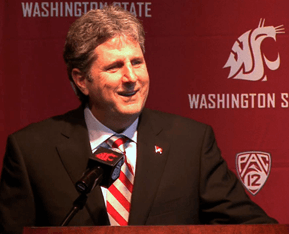
WSU Coach Leach Bans Players from Tweeting
By Joe Utter and Adam Lewis
Washington State University Coach Mike Leach banned players from using Twitter on Tuesday evening after a series of messages on the social media website was brought to his attention.
“Twitter is now banned around here so don’t expect anything on Twitter,” Leach said after Tuesday’s practice. “Twitter’s banned and quite frankly if after today you see anything on Twitter from our team– and I don’t care if it says ‘I love life’– I would like to see it because I will suspend them.”
During the past few months, several football players apparently posted public messages on the social media site that included derogatory terms for women and African-Americans. The Murrow News Service is not naming the players because of the difficulty in definitively verifying the identity of Twitter users. Many of the messages cannot be printed because of the inflammatory language. At least one of the Tweets was from a hip-hop song.
Hours after a reporter questioned the university about its social media policy for athletes, Leach announced his ban on Twitter.
The social media site has allowed sports fans to connect with their favorite athletes, but it’s also created a headache for coaches and university officials.
In March, the NCAA hit the University of North Carolina football program with heavy sanctions, including a one-year postseason ban and loss of scholarships, for failing to monitor its student-athletes, including activity on social media that may have yielded evidence of impermissible benefits and relationships with professional sports agents.
More universities are now taking a proactive approach to monitoring social media, including banning the use of social media by athletes and relying on outside companies to monitor unwanted or questionable activity.
Steve Robertello, associate director of compliance at WSU, said the athletic department is against using monitoring services at this time. Costs for using monitoring services range from $7,000 to $10,000 per year for a university, according to The New York Times.
“Last year, the NCAA told institutions they can be held accountable for what athletes put on social media,” Robertello said. “We did a couple trial runs with these companies to see what’s out there. Eventually we may have the ability to do it.”
The NCAA recommends universities monitor social media similarly to monitoring other outside campus activity. That can be difficult and time-consuming in an age of instant messaging.
Kevin Long, founder and CEO of UDiligence, said his company notifies an athletic department when the company identifies potentially offensive key words related to drugs, alcohol, sexual activity or obscenity, among others.
“When one of those keywords hits, email alerts are sent to the athlete and their coach/athletic department staff, allowing the athlete the chance to reconsider their post before it might become a negative news story and part of their digital legacy, impacting their search engine presence and online reputation,” Long wrote in an statement.
Bradley Shear, a Maryland-based social media attorney, has been a harsh critic of such programs.
“Schools are in the education business and not the spying business so these schools that properly educate their students on these issues are handling social media properly,” Shear said.
Shear said schools that use monitoring programs intrude on the student-athlete’s right to privacy and may be unconstitutional.
“These schools that engage these services appear not to understand the legal liability issues inherent with social media,” Shear said. “With access comes responsibility.”
Shear said universities should treat online monitoring “in the same way they treat offline monitoring.”
Robertello said the athletic department has taken the stance that its staff will take responsibility for monitoring activity. Robertello also said educating student-athletes on social media is key.
“Student-athletes are free to use it,” Robertello said, prior to Leach’s announcement. “We try to focus on education and how they should be appropriately using social media.”
Shear said WSU’s focus on educating student-athletes on social media is the right path and keep schools from possible legal issues in the next few years.
Related Stories:
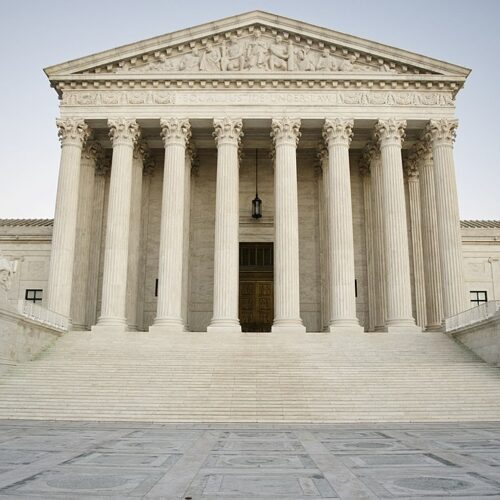
Idaho doctor: Abortion access ‘integral to the practice of OB-GYN’
Idaho has one of the strictest abortion bans in the country. On April 24th, the U-S Supreme Court is scheduled to hear oral arguments in a case to decide whether Idaho’s ban violates a federal law mandating emergency care. Continue Reading Idaho doctor: Abortion access ‘integral to the practice of OB-GYN’
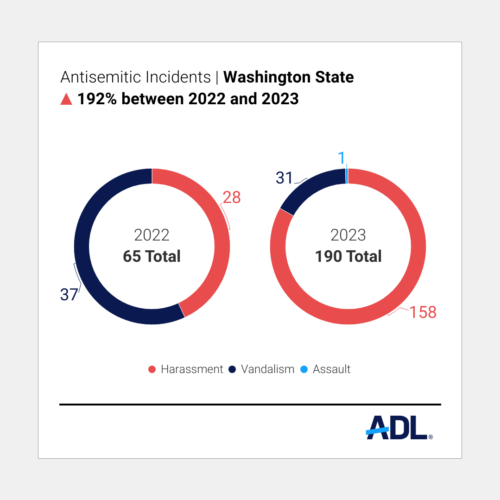
Audit finds marked increase in antisemitic incidents
According to a new report released April 16, by the Anti-Defamation League, 2023 had the most reported incidents of antisemitism nationwide since the organization began tracking incidents of antisemitism in 1979.
Last year, there were 8, 873 reported incidents of antisemitism nationwide, which the organization averages to one incident every hour.
Continue Reading Audit finds marked increase in antisemitic incidents
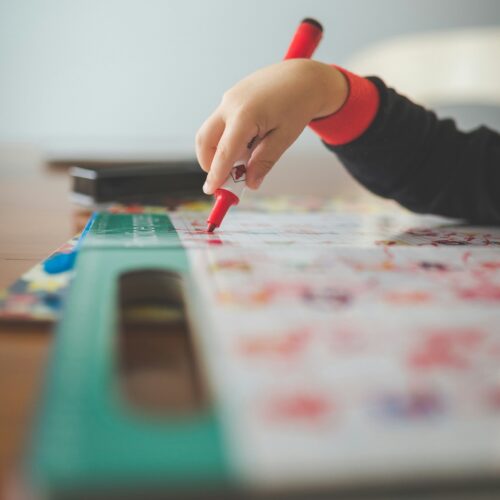
Nueva ley de WA sobre DEI en educación divide a residentes de Prosser
Las escuelas de Washington deben incluir en sus planes de estudios la historia y las contribuciones de grupos marginados y poco representados en el marco de la diversidad, la igualdad y la inclusión. Sin embargo, en Prosser, la ley recién aprobada ha causado divisiones. Continue Reading Nueva ley de WA sobre DEI en educación divide a residentes de Prosser




